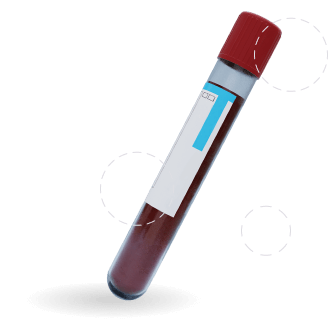
Medical Weight Loss Explained
A lot is said about medical weight loss but we are here to debunk the myths for you.
Blood Tests > Vitamin D Testing

Find Out More


Vitamin D is essential for your bone health and glucose metabolism. It helps your body absorb the calcium and phosphorous in your diet that keep your teeth and bones healthy.
A vitamin D deficiency can lead to numerous health conditions like rickets (in children) and osteomalacia (in adults). Therefore, regular vitamin D testing is paramount.

Vitamin D (also referred to as calciferol) is important for promoting calcium and phosphorus absorption and for maintaining the health of teeth, bones, and muscles. It also enhances pathogen-fighting white blood cells to support healthy immune system function. Additionally, it helps support muscle strength and performance, reducing the risk of falls and fractures, especially in older adults.
Vitamin D also plays a role in cell growth, neuromuscular function, and inflammation reduction. To sum it up, vitamin D is an incredibly crucial vitamin to monitor and maintain to ensure your well-being.
Signs of vitamin D deficiency can vary in severity and may include fatigue and tiredness, bone and back pain, muscle weakness, impaired wound healing, hair loss, frequent infections due to impaired immune function, and depression. Severe or long-term vitamin D deficiency can lead to conditions like osteoporosis or osteomalacia, where bones become weak and brittle.
Delayed growth in children and an increased risk of developing chronic diseases like cardiovascular disease, diabetes, autoimmune disorders, and certain cancers are also associated with vitamin D deficiency. It is important to recognise these signs early to prevent potential health complications.


Effective ways to increase your vitamin D levels include getting sun exposure (aim for 10-30 minutes of midday sunlight several times a week), changing your dietary intake (eat vitamin D-rich foods like oily fish, liver, red meat, and egg yolks), and consuming foods fortified with vitamin D.
Additionally, you can take vitamin D supplements; however, regular blood testing is still required when taking these supplements. Engaging in regular physical activity can also improve your overall health and support bone strength.
People who are most likely the most at risk for vitamin D deficiency diseases include:

Use our online booking engine or book your test by giving us a call.
On the online booking engine select the “appointment type” you need.
You will be seen by one of our friendly phlebotomists or trained clinicians.

By arriving to your test adequately hydrated will contribute to a more effective and comfortable blood-drawing and vitamin D testing experience overall.

This test involves a straightforward blood draw. A needle is inserted into a vein in your arm to collect a small sample of blood. You may experience a sensation similar to mild pinching during the procedure.

The results will be sent to you by email as a PDF attachment. If you had a consultation with one of our GPs, they will also give you a call to discuss your results. If you decide to have just a blood test with us, no interpretation is provided.
No
Hidden Charges
Transparent fees. The price you see is the price you pay.
No GP consultation
needed
No GP appointment requirement for blood tests
Established
since 1998
Experienced doctors & a professional team.
Strictly
confidential
Your medical records are kept private at all times.
We offer a wide range of private blood tests in London. Same-day appointments are available 5 days a week.
We work with experienced consultants & healthcare professionals who have received positive feedback from our patients, and with whom we have established long-term relationships.
Latest Episode
Tune in to our podcast to explore the world of healthcare and learn from distinguished special guests. We cover everything from preventative measures to cutting-edge treatments so that you can stay informed and up-to-date on health-related things.

A lot is said about medical weight loss but we are here to debunk the myths for you.

Tourist in London and need a GP? Get fast, private care for illnesses, injuries, or lost medication. No registration needed.

With NHS appointments harder to access, many people are turning to private GPs for faster, more convenient care.
Subscribe for latest updates & news


From same-day private GP and blood test appointments to visa medicals, a sexual and reproductive health clinic, and preventative health screenings, we are here to help.
Contact Us
Accepted Insurance Companies






Please note that Walk-in Clinic is a private medical centre & not an NHS service. Harley Walk-in Clinic Ltd company registration no. 07472804